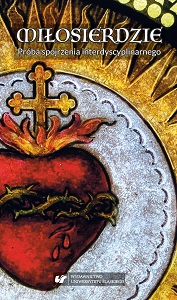JHWH jako Bóg miłosierny w Księdze Wyjścia 34,6-7 w ujęciu narracyjnym i teologicznym
YHWH as a Merciful God in Exod. 34:6–7 in Narrative and Theological Perspectives
Author(s): Sebastian Smolarz
Subject(s): Theology and Religion
Published by: Wydawnictwo Uniwersytetu Śląskiego
Keywords: mercy; wrath; judgment; attributive formula; collective retribution
Summary/Abstract: The aim of this article is to present various perspectives on the problem of mercy of God in the ontext of his justice. The first part briefly relates actions following the Golden Calf incident in Ex. 32, which led to the declaration of attributive formula in 34:6-7. Then, a fuller consideration is given to the etymology of rahûm, the first of seven positive adjectives describing YHWH’s character, which in a sense is principal. It is observed that the presence of two negative descriptions relating to the character in Ex 34:7 probably safeguard against a claim that God can become indifferent to justice in showing mercy. The third section presents a table which shows the way attributive formula is used in various traditions of the Hebrew Bible. It discloses that the predominant accent in those is on mercy. The following part presents a few theological perspectives which may help to unravel a mystery of merciful God, who at times is pictured as violent and unjust in his judgements. A consideration is given to the notion of evolutionary nature of divine revelation. Two proposals are given, i.e. that it is worth‑considering a collective view of God’s people as one persona who experiences some loss in her body in order to receive mercy, and that it may be that in order to fully grasp the bright of divine mercy, first one needs to see the dark of judgement. Finally, it is offered that viewing God as a passionate Divine Husband who faced adultery on the part of his wife can aid in understanding his burning anger which leads to violence. Yet, at the same time it is argued that the principle of imitatio Dei would be unacceptable for modern men in such a context (physical abuse of the woman by her husband). In conclusion, it is reaffirmed that accent in Exod. 32–34 is on divine mercy. But this mercy cannot be taken as a given but should be regarded as God’s act of free will.
Book: Miłosierdzie. Próba spojrzenia interdyscyplinarnego
- Page Range: 13-26
- Page Count: 14
- Publication Year: 2018
- Language: Polish
- Content File-PDF

